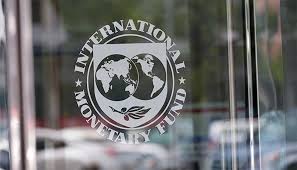An International Monetary Fund (IMF) staff team led by Carlo Sdralevich that visited the country last week to assess the economic situation of the country says the Fund will continue to monitor the challenging economic and social situation in Ghana closely in the coming weeks and engage authorities in the formulation of Enhanced Domestic Programme that could be supported by a Fund arrangement.
This will however require broader stakeholders’ consultation.
In a statement to conclude its seven days working visit to assess the current economic situation and discuss the broad lines of the government’s Enhanced Domestic Programme that could be supported by an IMF lending arrangement, Mr. Sdralevich however reaffirmed the Fund’s commitment to support Ghana at this difficult time.
“We reaffirm our commitment to support Ghana at this difficult time, consistent with the IMF’s policies”.
He stressed that Ghana is facing a challenging economic and social situation amid an increasingly difficult global environment with the fiscal and debt situation severely worsened following the COVID-19 pandemic.
At the same time, investors’ concerns have triggered credit rating downgrades, capital outflows, loss of external market access, and rising domestic borrowing costs.
“In addition, the global economic shock caused by the war in Ukraine is hitting Ghana at a time when the country is still recovering from the Covid-19 pandemic shock and with limited room for maneuver. These adverse developments have contributed to slowing economic growth, accumulation of unpaid bills, a large exchange rate depreciation, and a surge in inflation”.
The IMF team held initial discussions on a comprehensive reform package to restore macroeconomic stability and anchor debt sustainability.
The team made progress in assessing the economic situation and identifying policy priorities in the near term. The discussions focused on improving fiscal balances in a sustainable way while protecting the vulnerable and poor; ensuring credibility of the monetary policy and exchange rate regimes; preserving financial sector stability; and designing reforms to enhance growth, create jobs, and strengthen governance.
The team met with Vice President Bawumia, Finance Minister, Ken Ofori-Atta, and Governor of the Bank of Ghana, Dr. Ernest Addison. They also met with the Parliament’s Finance Committee, civil society organizations, and development partners, including UNICEF and the World Bank to engage on social spending.
The staff expressed their gratitude to the authorities, civil society, and development partners for their constructive engagement and support during the mission.
Latest Stories
-
I am committed to improving standard of education – Hohoe MP
6 minutes -
We did not play football – Hearts coach Ouattara rips into his team following Aduana defeat
26 minutes -
Shining the light on haemophilia and bleeding disorders in women and girls
29 minutes -
Producer price inflation for March eases to 24.4%
35 minutes -
We were undone by counter attacks – Ogum reflects on Kotoko’s heaviest defeat of the season
44 minutes -
MobileMoney LTD refutes claims of system breach following social media allegation
1 hour -
VRA assures Ghanaians of sustainable power production
1 hour -
Ghana unveils ambitious downstream agenda at Invest in African Energies: Accra Investor Briefing
1 hour -
Global Environment Facility completes key training to improve project oversight among operational focal points in West Africa
2 hours -
Ghana losing millions of dollars through smuggling of Coca-Cola products – MD discloses
2 hours -
Implementation committee inaugurated for establishment of Kumawu Nursing and Midwifery College
3 hours -
POJOBA congratulates Defence Minister Omane Boamah, extends invitation for June Speech Day
3 hours -
Palestine pushes for full UN membership, urges African support amid genocide accusations against Israel
3 hours -
‘Not the NDC’s legacy, it’s ours’ – NPP’s Haruna Mohammed on election review tradition
3 hours -
Ghana celebrates Francophonie walk
3 hours

